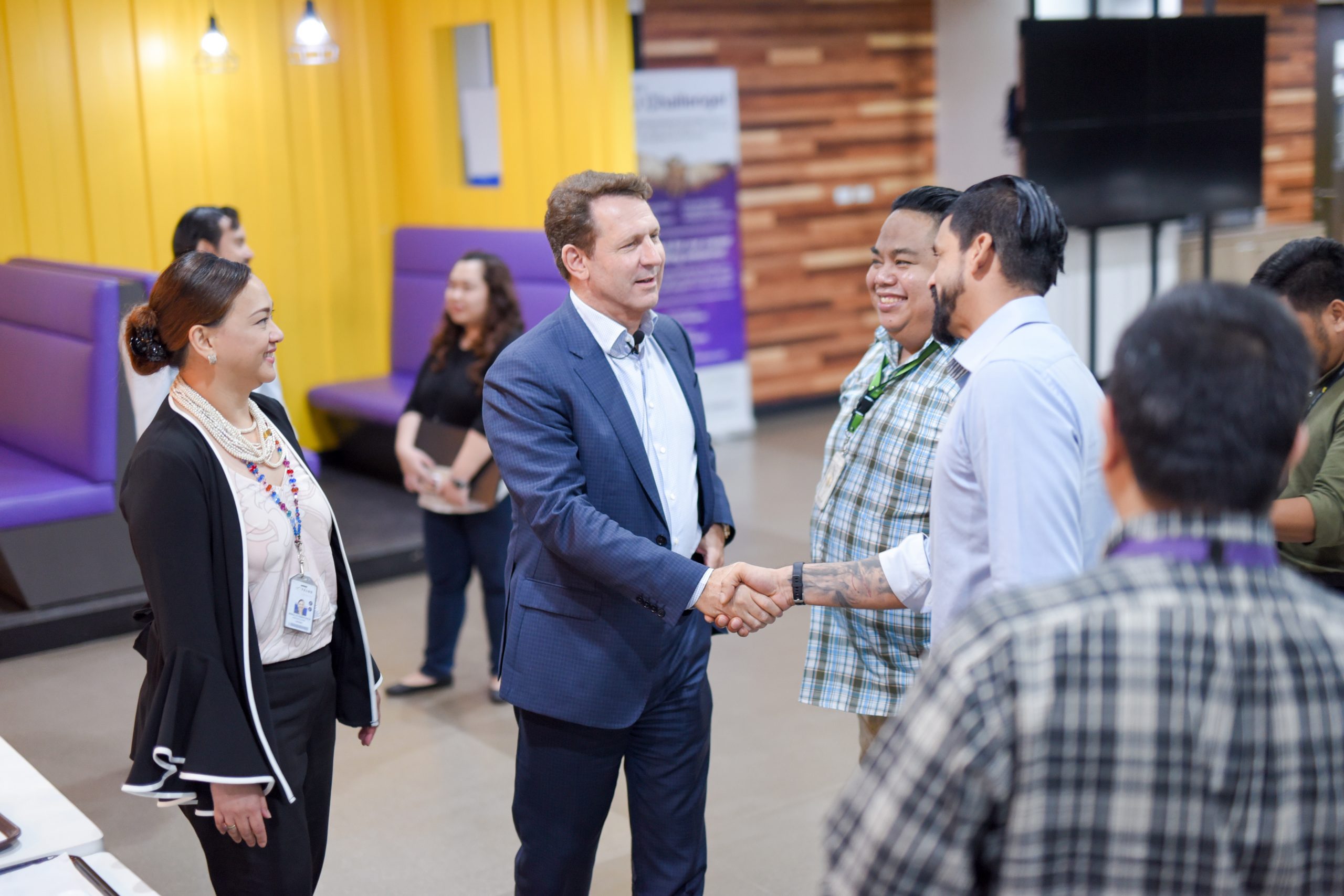To say that 2020 has been unpredictable would be an understatement. As business and people leaders, each of us has had to redefine aspects of how our companies and teams operate due to the ever-changing circumstances brought about by COVID-19. And, as the world nears the one-year anniversary of the pandemic, what may have been short-term solutions, have now become part of our ‘new normal’. How and where our employees work is no exception.
The initial mass migration to virtual work models to keep employees safe has now officially transitioned to a long-term workforce strategy for many companies. This shift has produced many benefits for companies and employees alike; however, it has also presented employers with a new set of challenges. With no definitive end in sight, many are discovering that the work-from-home (WFH) plans that were originally put in place to protect employees’ well-being, may actually be having an adverse effect as the pandemic lingers.
Amid a lack of clear boundaries between work and home life along with the demands of splitting one’s attention between the concurrent needs of other household members including children, spouses and even demanding pets who are especially fond of their owners’ new stay-at-home status, it is not surprising that some employees are experiencing record levels of fatigue.
Defining fatigue: the brain is to blame
Oftentimes, our understanding of fatigue is limited to being physically tired when in reality, fatigue can also relate to an emotional state. And, when it comes to our overall well-being, emotional fatigue carries a much higher toll. In fact, studies have shown that emotional fatigue overshadows all other types, meaning that even if the body is physically well, mental or emotional exhaustion can affect our abilities.
Case in point, a study conducted by the American Physiology Society showed that cyclists’ endurance dropped to 80% of their typical performance after conducting a challenging 90-minute cognitive task.
What I find particularly fascinating is that the inverse is also true. Emotional well-being or mental fortitude can actually help humans overcome physical deficiencies. Physiologists used to believe that we feel fatigued because our muscles can no longer work. But in 1924, Archibald Hill proposed the idea that when the body is fatigued, it is actually our brain - not our muscles - that is the culprit, sending them messages to slow down in order to conserve energy as a survival instinct. Years later, a sports scientist named Timothy Noakes proved Hill’s theory, confirming that the messages from our brains are what we actually feel when physically fatigued, and they have very little to do with the actual muscles’ ability to continue to function.
“Let’s talk about our feelings.”
Once a not-so-subtle tip-off to an impending break-up, this five-word phrase could be the key to re-energising employees in 2021 after a long and stressful year. With science fortifying the critical importance of emotional well-being for peak performance, it must be prioritised by employers in meaningful ways and on a sustained basis if they are going to thrive and outpace their competitors, especially in the ongoing challenging climate.
At an organisational level, that means upholding a long-term commitment to fostering a caring culture where each and every employee feels valued and appreciated for their unique contributions. This includes leaders that set the tone by demonstrating authenticity, vulnerability and transparency, and who lead by example. At a team level, it means dedicating the time to ask individuals how they are doing to gain a better understanding of their challenges and collaborating to find ways to support them - whether that means providing a more flexible schedule, some extra days off or funding for a learning opportunity or special interest class to pursue a hobby.
It is my fervent belief that leaders whose sole focus is to meet only their employees’ most basic needs - providing a paycheque and a safe work environment - will never achieve the requisite levels of employee engagement to succeed. The countless benefits of a healthy and engaged workforce range from increased productivity to reduced absenteeism, higher employee retention rates, boosted profitability, and enterprise-wide innovation.
Celebration and laughter
Not surprisingly, celebration and laughter are essential ways to fill our emotional ‘buckets’. Taking part in communal celebratory activities and sharing successes and accomplishments lifts our spirits, while laughter creates and strengthens bonds with others, builds resiliency and increases creative thinking. The obvious conundrum is, how do we do this when we are apart, and impromptu hallway conversations and other casual touchpoints throughout the day, as well as more formal company gatherings and events, aren’t an option.
It can be as simple as maintaining weekly one-on-one checkpoints with your team that focus more on how they are doing rather than what they are doing by running through to-do lists, or participating on internal social media platforms to share a photo, meme or recipe, or recognising a colleague for a job well done. Personally, I am hosting virtual town hall meetings to answer team member questions, and I maintain an open-door policy where everyone across the organisation knows they can contact me anytime.
At a team level, it means dedicating the time to ask individuals how they are doing to gain a better understanding of their challenges and collaborating to find ways to support them - whether that means providing a more flexible schedule, some extra days off or funding for a learning opportunity or special interest class to pursue a hobby.
In a strange way, daily video conferences from our home offices have helped us gain a new perspective on one another that has brought us closer together. It has also been a great source of laughter as I have met spouses who’ve walked in on calls searching for lost keys, hungry children seeking snacks, and too many loudly snoring dogs to count. I have also learned about a colleague’s interest in Asian artwork, spotted an expansive cookbook collection and had the vocal rehearsal of a future Broadway star serve as the background music for a call. It has and continues to be a privilege to get this unique view into our team members’ lives.
Giving back
Serving the communities where we live, work and raise our families has always been at the core of TELUS International’s culture. Even through COVID-19, we have provided our team members with opportunities to give back to the causes they are passionate about primarily because it is the right thing to do, but also because we understand that giving back highlights our shared values and forges strong bonds that galvanize teams.
In previous years, our organisation held TELUS Days of Giving events in which thousands of team members, their friends and family members and our clients would come together on a day to build an entire school, homes in a community, or plant thousands of trees. This year, with these types of large events on hold, I have been inspired by our team’s dedication to finding new ways to virtually come together to support their fellow community members in need by knitting scarves, making blankets and fostering animals from local shelters.
Physical, not social, distancing… for now
Steve Jobs apparently said: “Great things in business are never done by one person. They’re done by a team of people.” This is an important reminder for leaders that our responsibility does not end after we recruit and hire employees; that is when it actually begins. We are meant to build people up so that they, in turn, can build the business, which underlines the criticality of ensuring they have what they need from us to be able to bring their whole and best selves to work each and every day.
In any given year prior to 2020, being in the same time zone for more than two weeks at a time was quite literally a foreign concept to me as I typically travelled for 250 days, visiting with our team members and clients around the world. Although hectic, I loved every moment spent with them, and I am thankful for the memories created on those trips while I await the day when it is safe to once again reconnect in-person to ‘marinate’ in the business over a glass, or two, of wine.
Until then, regardless of whether our team members are working remotely, are back in our facilities, or are doing a bit of both, we will continue to find meaningful ways to connect, celebrate and laugh.
About Jeff Puritt
Since joining TELUS International in 2008, Jeff has led the company’s evolution from a regional customer experience (CX) services provider to a next-generation digital solutions innovator for global and disruptive brands, and its exponential growth from 2,000 to almost 50,000 team members located around the world.
About TELUS International
TELUS International designs, builds and delivers next-generation digital solutions to enhance the customer experience (CX) for global and disruptive brands. TELUS International’s integrated solutions and capabilities span digital strategy, innovation, consulting and design, digital transformation and IT lifecycle solutions, and omnichannel CX solutions that include content moderation, trust and safety solutions and other managed solutions. Fuelling all stages of company growth, TELUS International partners with brands across high growth industry verticals, including tech and games, communications and media, eCommerce and FinTech, healthcare, and travel and hospitality."











